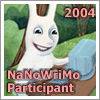Sleeping War
Tim O'Brien, a writer known for his questioning of "story-truth" vs "happening-truth" as he calls it, wrote a seminal book called The Things They Carried, a book which has subsequently been featured in most of the introductory college literature and writing courses I've taken, sat in, and assisted teaching. Although there are more than two stories in that book, most instructors choose to have their students either read the title story "The Things They Carried," or "The Man I Killed." The first story is generally interpreted through the template of America's involvement in the war, the Vietnam war protests, and the general cultural shift that occurred in society during the sixties. The second story usually focuses on the individual trauma that a soldier experiences after killing the enemy. Male students generally perk up when discussion of this particular story begins, and I also admit to being interested in it when I first read it as well. But while some students, depending on their personality, see as a macho thing, some see it as an intensely introspective experience caused by a trauma that they conceptually could face in the future. It seems safe to say that war, although deeply troubling, has traditionally been viewed as a male experience. In light of that, O'Brien has been criticized--and perhaps rightly so--for excluding the voice of women in his stories. It is a near certainty that women have been involved in every war since the beginning of human experience. To exclude them without a conscious artistic motivation for doing so is a problem for me, but then again, I don't write novels.
However, I do write papers, and I am finding that every paper that I have written for graduate school has so far focused on one war or another. I find myself wondering: why? I did not plan it that way, but that has where my interest has taken me. Whether discussing the colonies and empires of the nineteenth century, or the experience of severe emotional and physical trauma and the ways it is represented in writing, war continually comes back up. I'm beginning to feel that the real reason is that although we currently fighting a war, it is one which feels like a "sleeping war." Like a dream (nightmare), it has been floating through my daily life at the edge of awareness, entwining itself with the unspoken, behind the aether of consciousness--and hidden there, numbly bleeds into my life without knowing it. Perhaps, in some form or another, this is happening to all of us in the states. Only occasionally does the war call our direct attention. For the rest of the time, we act as if the war has become something like a background, like furniture--and as such it disappears from our deliberate attention.
However, I do write papers, and I am finding that every paper that I have written for graduate school has so far focused on one war or another. I find myself wondering: why? I did not plan it that way, but that has where my interest has taken me. Whether discussing the colonies and empires of the nineteenth century, or the experience of severe emotional and physical trauma and the ways it is represented in writing, war continually comes back up. I'm beginning to feel that the real reason is that although we currently fighting a war, it is one which feels like a "sleeping war." Like a dream (nightmare), it has been floating through my daily life at the edge of awareness, entwining itself with the unspoken, behind the aether of consciousness--and hidden there, numbly bleeds into my life without knowing it. Perhaps, in some form or another, this is happening to all of us in the states. Only occasionally does the war call our direct attention. For the rest of the time, we act as if the war has become something like a background, like furniture--and as such it disappears from our deliberate attention.
29 January 2004
Comments:
Post a Comment
